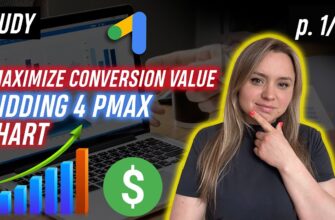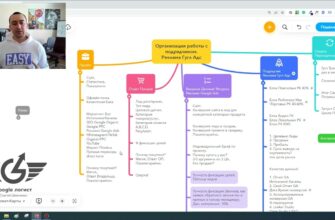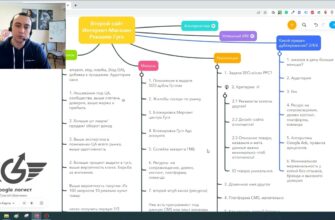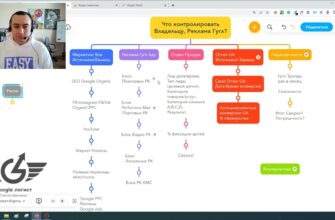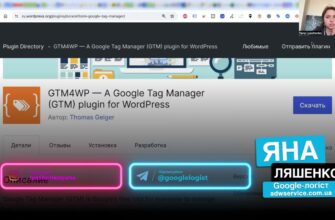- Types of keyword matching in Google Adwords
- Why is it important to consider match type when setting up ads?
- Broad match type in Google Ads
- Advantages of broad compliance:
- Disadvantages:
- Broad match modifier
- Pros:
- Disadvantages:
- Phrase-based keyword matching type
- Advantages of phrase matching:
- Disadvantages:
- Exact match type for key phrases
- Advantages of exact matching:
- Cons:
- Types of matching for negative keywords
- Accurate
- Phrasal
- Wide
- Changes to Google AdWords match types in 2020
Using keyword match types in Google AdWords allows you to determine how closely a potential buyer’s query must match the ads shown to them.
With this tool (if used correctly), you can not only improve the quality of your ads, but also significantly reduce the cost of your campaign. This allows you to adjust whether the system should show ads if a synonym for the query was entered in the search bar, or if the words are in reverse order, etc.
Types of keyword matching in Google Adwords
There are only four types of matching in Google AdWords. Broad matching is enabled by default in the system, and no special modifiers are required to use it. PPC specialists can also enable exact matching, phrase matching, and broad matching with modifiers.
How many calls and sales will I get by ordering contextual advertising from you?
I need to calculate the conversion of my website Describe
the task
in the application
Calculate potential ad revenue Google
contextual advertising calculator
Each of them can be used depending on the objectives of the advertising campaign. For example, if we need to attract the maximum amount of traffic to the website, we use broad match; if we want to maximize user intent and get the most relevant clicks, then we use exact match.
Important! A PPC specialist must understand the purpose of each type of match — they prevent ads from being displayed for irrelevant keywords and directly affect the success of a paid search campaign.
Why is it important to consider match type when setting up ads?
Let’s say you sell children’s products and use the keyword “soft toys” in broad match when setting up your advertising campaign. In this case, your ad will be shown for a variety of irrelevant items: “handmade soft toys,” “children’s toys,” etc.
The fact is that according to Google Ads algorithms, when using broad match, an ad will be displayed when:
- One word matches the keyword exactly, and the second is similar in meaning;
- Both words in the search query are synonyms of the key phrase;
- Two words completely repeat the essence of the keyword, and there are additional words that change the meaning of the entire phrase.
As a result, you will receive:
- Low CTR. Most users will simply ignore an irrelevant ad when they see it.
- High bounce rate. People who land on your site through irrelevant search queries will quickly leave without finding the product they need. This will worsen behavioral factors.
- Budget drain. You will pay for clicks from users who are not initially interested in making a purchase.
- Low conversion rates. Non-targeted traffic rarely converts into purchases.
Broad match type in Google Ads
This type of keyword matching is configured by default. It displays the maximum number of queries, including word forms, synonyms, reverse word order, etc. It is rarely used, as the system is unable to determine adequate synonyms on its own, and we risk getting many irrelevant clicks on the page.

Options for use:
- When you need to expand semantics with new queries;
- When you need to get more traffic, but all the core target keywords have already been collected;
- For advertising campaigns targeting the English-speaking market, Google Ads selects synonyms in English more carefully.
Attention! When working with broad match type, you need to constantly expand your list of negative keywords and regularly monitor reports in your advertising account.
Advantages of broad compliance:
- Covers a variety of low-frequency sounds associated with the key;
- Performs well in narrow-scope topics where semantics are limited;
- There is no need to spend time and resources on collecting the semantic core;
- The cost of switching to the website is significantly lower;
- It is easier to search for demand segments that were not previously taken into account when collecting semantics;
- It is convenient to collect statistics on new niches and test hypotheses based on them;
- It is most beneficial to customers who are interested in coverage rather than sampling accuracy.
Important! Broad matching is most interesting to advertisers who occupy a narrow niche and are trying to understand which search queries visitors are likely to use to find their product.
Disadvantages:
- The rating of ads is decreasing, which leads to a lower average position;
- Due to weak relevance, the overall CTR of advertising suffers;
- High risk of receiving non-targeted traffic;
- The possibility of financial loss from impressions on queries that do not generate sufficient conversion.
Broad match modifier
The most commonly used type of keyword matching makes advertising more predictable. It excludes synonyms from coverage, leaving abbreviations, declensions, words with the same root, and errors. The advertisement will definitely contain word forms or phrases that you mark with a “+” sign during setup.

The main task of the modifier is to bring keywords closer to more accurate word forms, which reduces coverage but increases the relevance of impressions. Using this type of match potentially increases the number of conversions while maintaining tighter control over the campaign.
Pros:
- You can find additional relevant words and then use them in advertising;
- Increased clickability compared to broad match;
- The cost of transition is often less than in the exact type.
Disadvantages:
- There is a risk of receiving non-targeted clicks (in practice, this can be approximately one in five);
- The inclusion of auxiliary words and their rearrangement in a phrase can radically change the meaning of a query.
Phrase-based keyword matching type
Generates impressions only when all components of the keyword phrase are used in the query and in the same order. This type of Google Ads match is more restrictive than the previous ones.

To display an ad, the search engine must receive an exact phrase without any variations or inflections. Additional words may be added before or after the keyword.
Advantages of phrase matching:
- You can reduce the likelihood of irrelevant clicks to a minimum;
- Allows you to control the order of words that make up the query;
- The clickability is significantly higher compared to other types.
Disadvantages:
- A sharp limitation of publication coverage, especially when key endings are insufficiently developed;
- The cost of transition is above average.
Exact match type for key phrases
If you use exact keyword matching in AdWords, your ads will be displayed when a phrase that exactly matches the keyword is entered. This is considered the most restrictive of all.
How many calls and sales will I get by ordering contextual advertising from you?
I need to calculate the conversion of my website Describe
the task
in the application
Calculate potential ad revenue Google
contextual advertising calculator

Allows you to specify the number of words in a query and their order. However, ads will be displayed for queries in the plural form or if the phrase contains conjunctions or prepositions.
Exact matching should be used when you have a small advertising budget, if you don’t want to select negative keywords, or if you need to break down a more general phrase into its constituent parts.
Advantages of exact matching:
- Publications are displayed only for the specified phrase, and there is no need for negative keywords.
- There is no risk of receiving irrelevant clicks;
- CTR is as high as possible.
Cons:
- Narrow user coverage;
- Significant time spent collecting the semantic core (since all possible ways of writing the keyword must be included in the campaign).
Types of matching for negative keywords
By using negative keywords, you can prevent AdWords from displaying ads for irrelevant queries. This allows advertisers to limit their campaign budget and increase the overall profitability of their project, while ensuring that only genuinely interested audiences see their ads.
The following match types are allowed for negative phrases in Google Ads:
Accurate
In this case, ads will not be displayed only if the visitor enters the same words that were excluded in the search bar, and in the exact same order.

Phrasal
Excludes ad impressions when a negative phrase appears in a user’s query, with the words within that phrase appearing in a specific order. It does not matter whether other words were used before or after the blocked phrase. However, if the user rearranges the words in the query, the ad will be displayed.

Wide
Prevents ads from being displayed for queries that contain the minus phrase used in the text.
Please note: Keep in mind that if a query contains spelling errors or typos, the ad will not be blocked. When compiling lists of negative keywords, be sure to include all possible spelling variations and typos separately.
Broad matching is also not suitable for search queries that are too long. For example, if the query begins with ten or more words, followed by a negative phrase in broad match, the ad will be displayed as usual.

Changes to Google AdWords match types in 2020
Since 2020, keyword match types in Google Ads, such as broad and phrase, have started to work for similar queries. The updated rules make them virtually indistinguishable, and keyword forms become less significant.
Google has provided information indicating that the changes will bring significant benefits to advertisers:
- The number of conversions and visits will increase by approximately 3-4%. At the same time, 85% of new visits will be generated by updated keywords and phrases.
- Increased relevant traffic – advertising publications will be displayed according to words that are close in meaning to keywords. This will significantly expand the audience, and in the early days of the innovation, the number of clicks on ads will increase sharply;
- When ranking ads, keywords and phrases are no longer decisive. The system independently evaluates and selects the necessary information corresponding to the search intent;
- Time saving – the system will independently select synonyms and queries based on users’ thematic interests.
In addition to the positive aspects of the changes, there are also some drawbacks:
- No control over ad impressions. It will now be impossible to track the queries for which a publication is displayed. This innovation will make promotion in narrow niches more difficult. Advertising campaigns can now only be managed using negative keywords and smart bidding.
- In the early days of the new rules, advertising costs will increase significantly;
- It is impossible to implement the SKAG strategy. Optimizing headlines and text for keywords becomes meaningless.
Artificial intelligence is becoming increasingly sophisticated and now takes on a large number of tasks that were previously done manually. In the future, advertisers will need to carefully monitor keyword reports and quickly respond to irrelevant queries by adding them to negative keywords in order to maintain their promotion.


